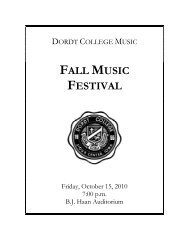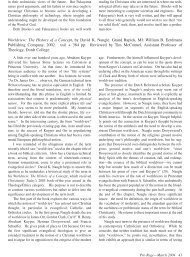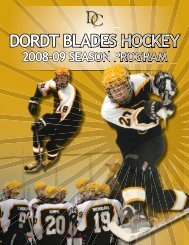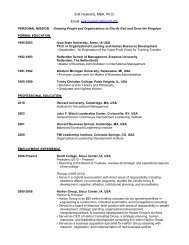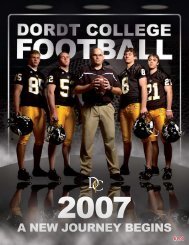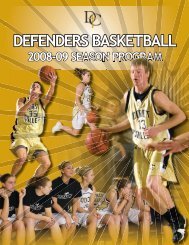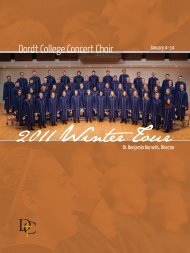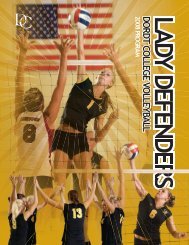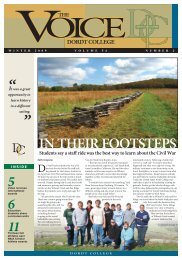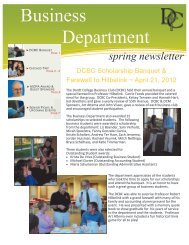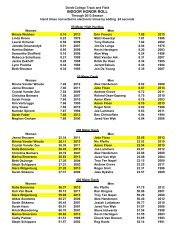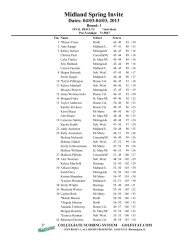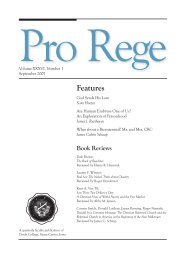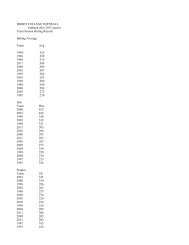June 2009 - Dordt College
June 2009 - Dordt College
June 2009 - Dordt College
You also want an ePaper? Increase the reach of your titles
YUMPU automatically turns print PDFs into web optimized ePapers that Google loves.
A Free Christian<br />
University: Review Essay<br />
by Keith Sewell<br />
Arie Theodorus van Deursen, The Distinctive<br />
Character of the Free University in Amsterdam, 1880-<br />
2005: A Commemorative History, translated by<br />
Herbert Donald Morton. Grand Rapids: William B.<br />
Eerdmans Publishing Company, 2008, ISBN: 978-<br />
0-8028-6251-8, 538 pp. incl. bibliography.<br />
Some books, as soon as they are announced,<br />
find their way to the top of my “must read” list.<br />
This is one of them. Translated by Donald Morton,<br />
this is the first history of the Free University in<br />
Amsterdam (FU) in the English language. The<br />
author, Arie Theodorus Van Deursen, is Professor<br />
Dr. Keith Sewell is Professor of History at <strong>Dordt</strong><br />
<strong>College</strong>.<br />
Emeritus of modern history at the FU; therefore,<br />
the latter portions of this work are written from<br />
the standpoint of the participant-observer. This is<br />
a personal account, without any mask of presumed<br />
objectivity. As the preface states, Abraham Kuyper<br />
(1837-1920) saw the establishment of the FU in<br />
1880 as his greatest achievement. Its twofold purpose<br />
was to train in science and scholarship according to<br />
Reformed principles and to produce an educated<br />
leadership for those institutions representative of the<br />
Reformed side of Dutch national life (xiii). After the<br />
Doleantie crisis of 1886 resulted in the formation of<br />
the Gereformeerde Kerken in Nederland (GKN), it was<br />
the Gereformeerde portion of the Reformed in the<br />
Netherlands that the FU both served and from which<br />
it received support. The FU was envisaged in terms<br />
of Kuyper’s teaching on “sphere sovereignty,” the<br />
theme of Kuyper’s inaugural address: Souvereiniteit<br />
in eigen kring. As van Deursen puts it, “all spheres of<br />
life are independent of each other” and “possess their<br />
sovereignty by the grace of God” (20). Accordingly,<br />
a university distinctively Reformed (here specifically<br />
Gereformeerd, meaning “re-reformed”) in character<br />
was necessary if science and scholarship were to be<br />
pursued in an authentically Reformed manner (21).<br />
Van Deursen undoubtedly admires this grand<br />
vision, yet as we read chapter after chapter, it is<br />
possible to detect the presence of what amounts to an<br />
arrière-pensée. It is detectable when he suggests that<br />
the FU was free only from 1880 to 1886 and was<br />
thereafter bound to the GKN denomination, which<br />
only terminated the relationship in 1999 (190, 444).<br />
Certainly, van Deursen is clear that especially since<br />
the level of government funding rose to 100 percent<br />
in 1968 (241), the FU was inevitably subjected to<br />
18 Pro Rege—<strong>June</strong> <strong>2009</strong>



